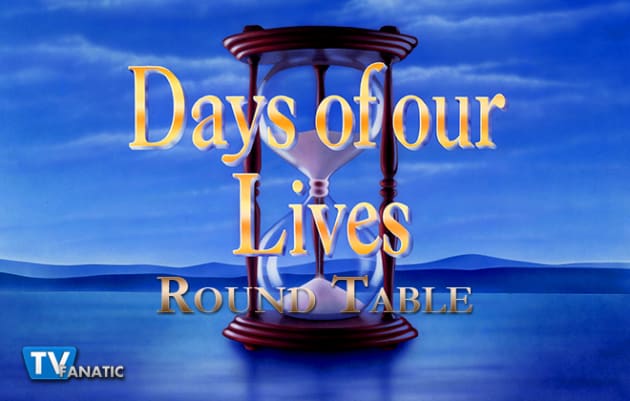Love em or hate em, Apple’s costly devices and indulgence in its streaming platform represent the bougie category of the tech market. In fact, it’s kind of surprising how cheap Apple’s streaming subscription is, at only $9.99 per month.
Apple TV+ is the HBO of the ’80s and ’90s, standing apart by virtue of quality over quantity. That’s not to say that shows and movies on Apple TV+ are the best.
But the quality of production, casting, setting, and presentation are bar none. As it turns out, there’s a reason for that. Apple is spending exorbitant amounts of cash on its streaming platform.
(Apple TV+)
However, while it costs well north of a thousand dollars to bring home a shiny new iPhone, an Apple TV+ subscription is cheaper than flying solo for fast food takeout.
It’s the Law of Contradiction. Two things cannot be true at once. In this case, Apple cannot continue dumping cash while the cost of its service remains low.
Apple’s Costly Spending Bonanza in Search of Streaming Superiority
It’s not a matter of how Apple is spending so much. After all, Apple is consistently in the mix for leading tech companies by market cap each year.
Related: Presumed Innocent Renewed for Season 2 at Apple TV+
It’s a matter of why. The long-held belief that a business has to spend money to make money is true to a large degree.
In terms of longevity, Apple TV+ is one of the new kids on the block, and it makes sense to spend money and expand the library of content available to consumers.
There’s the sensical approach to this, and then there’s Apple’s approach, the latter of which is utterly incomprehensible. For instance, Apple spent $20 million per episode on Severance Season 2.
(Courtesy of Apple TV+/Screenshot)
Now, think about that for a second. Considering the setting for Severance Season 1, it’s doubtful that Season 2 will feature gigantic monsters, sweeping vistas, massive megacities, or adventures in outer space.
Now, multiply $20 million by 1,000, and you have the amount Apple has spent on its streaming service so far, including a head-scratching $500 million on a few movies with big-name directors and $250 million on Masters of the Air.
How many people have heard of Masters of the Air as opposed to Netflix’s The Witcher? Let’s put Apple’s costly streaming expenditures into some sort of context.
Netflix spent $80 million on the first season of The Witcher, with some estimates claiming the number is even lower. Both Masters of the Air and The Witcher were the most popular series on their respective platforms at launch.
Apple doesn’t release much data on viewership ratings, but season 1 of The Witcher raked in 83 million views in three months, with over 660 million viewing hours.
Why is Apple Spending So Much?
(Courtesy of Apple)
Whether or not exorbitant spending is a healthy business decision remains to be seen. Ultimately, however, Apple’s costly streaming expenditures have little to do with Apple TV+, at least not directly.
The most valuable company on earth can withstand mass spending with little return on investment (ROI). Much of the “ROI” Apple is interested in is a byproduct of their streaming service devices.
Related: Is Apple TV+ the Most Innovative Streamer?
This is also why there are so many deals that come with purchasing Apple products, such as a three-month free trial of Apple TV+ with the purchase of a new iPhone, iPad, or Apple Watch (insert additional Apple products here).
Apple’s costly endeavors in the streaming market have resulted in considerable critical success. The press highly regards many shows on Apple. Unfortunately, that comes with a caveat.
No one really knows the number of subscribers to Apple’s streaming platform. The current speculation is roughly $20 million.
(Apple TV+)
Assuming all 20 million are paying subscribers (many are not), that comes to a shade under $200 million per year — which doesn’t come close to the cost of Masters of the Air. At $20 million per episode, Severance Season 2 cost $180 million.
With that kind of lopsided spending versus ROI, device-purchasing persuasion may no longer be effective.
Apple is Clamping Down
On the positive side, this kind of off-the-rail spending meant good times for Indie creators and risk-takers. But it looks like the big party free-for-all is coming to a close, at least part of it.
This includes cuts across the board, along with Apple finally succumbing to the one thing Apple TV+ had over the competition — ads. I am running a few minutes late; my previous meeting is running over.
It was nice while it lasted. Before long, if you want to watch Apple TV+ ad-free, you’ll have to pony up some extra cash. It is what it is, but nothing good lasts forever.
(Apple TV+)
It doesn’t matter how critically acclaimed your programming is when it takes a month to get as many viewer hours as Netflix gets in a day. That’s bad.
Apple’s response is to curtail production costs, immediately eliminate poor-performing shows or movies, take a pickier approach to approving new productions, and bolster existing content via licensing.
Related: For All Mankind Renewed; Apple TV+ Announces Spinoff Titled Star City
Apple’s costly approach to streaming content gave us a platform with more quality programming than not, something most other platforms can’t claim. The thing is, no one is watching it for whatever reason.
Adding movies and shows from various studios will help draw in more people. Honestly, Apple TV+ is great if you’re only looking at shows. However, most people want a more dynamic experience, including non-Apple-specific content.
Will Apple’s Response Stop the Bleeding?
(Apple TV+)
Honestly, some of the unbelievable expenditures resulted from the pandemic and writer’s strike. Severance is one such casualty. The production of season 2 had both the pandemic and the strike to contend with, driving up the overall costs.
However, there’s little doubt that Apple’s costly ambivalence toward the various creative agencies within its streaming service is coming to an end.
Apple has a degree of freedom that platforms like Netflix have never had. Being the richest tech company in the world helps when starting a streaming platform.
Netflix had no such financial fallback infrastructure when it was renting DVDs in the mail. At the same time, sitting on a high perch makes it difficult to see what’s happening at ground level.
Apple is making the right moves in this direction, but it remains to be seen if Apple TV+ will become a viable, sustained money-maker for the fruit empire.
You can view the original article HERE.






























